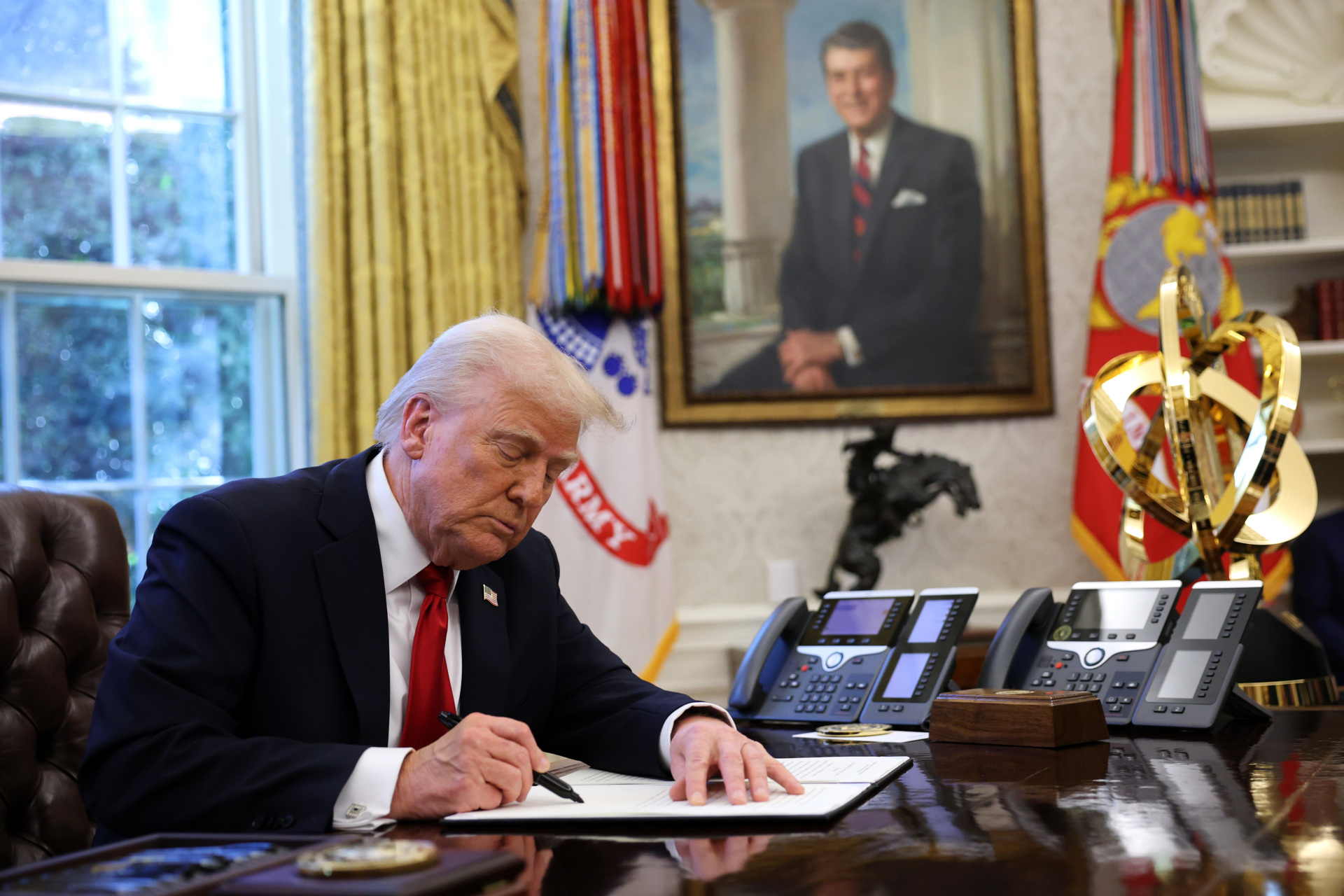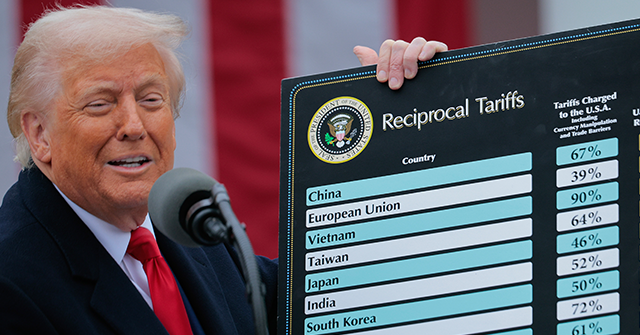The Grand Old Tariff Party Is Back
For years, the Republican Party treated tariffs as a kind of ideological sin — a rejection of Reaganite orthodoxy, an unpardonable offense against the donor class. Pat Buchanan called it The Great Betrayal in his 1998 book by that name: the GOP had abandoned the economic nationalism that once made it the dominant party in America.
But today, that betrayal is being reversed. The Republican base has rediscovered its roots as the party of America First economic nationalism.
New polling confirms the turn. In a July survey conducted by YouGov for The Economist, 70 percent of Republicans said they support Donald Trump’s tariffs. Forty-one percent said they “strongly support” them. Among Trump’s 2024 voters, the numbers are even more decisive: 79 percent support tariffs, with a full half expressing strong support. This is no longer a renegade position. It’s the new consensus.
Another national survey by YouGov on trade policy reinforces the message. Asked whether tariffs on Chinese imports would help or hurt the American economy, 58 percent of Republicans said they would help. Just ten percent believed they would hurt. A full 69 percent of Republicans now believe the United States has been taken advantage of in international trade agreements. Free trade, once the dogma of elite GOP circles, has lost its grip.
That poll—taken between July 8 and 11, three months after Trump announced his Liberation Day tariff hikes—found that 34 percent of Republicans say tariffs should be raised even further, and 28 percent said we should keep them where they are. Among Democrats, by contrast, 60 percent say tariffs should be lowered.
Even when warned that tariffs might raise prices, Republican voters remain committed. Among Republicans, just 23 percent say tariffs will definitely raise prices — and half believe they probably won’t raise prices at all. Their instincts are backed by experience. Trump’s first round of tariffs didn’t unleash inflation; in fact, in many categories, prices fell. The latest round has coincided with low inflation, emboldening critics of the Federal Reserve’s policy of holding back interest rate cuts for fear of tariff-led price increases. What critics call “trade wars,” voters increasingly see as defensive measures — a long-overdue response to decades of industrial decline.
Among Americans saying that tariffs should be increased, 81 percent back the hikes even if this means that American consumers will have to pay higher prices. Among Trump voters who want higher tariffs, 87 percent say they should go up even if prices rise. In other words, no amount of tariff-inflation fear-mongering is likely to shake Republican support for tariffs.
Vanquishing the Import Lobby Republicans
Meanwhile, the anti-tariff wing of the Republican establishment is vanishing. The names once synonymous with free trade absolutism — Senators Ben Sasse, Jeff Flake, Orrin Hatch, Bob Corker, Pat Toomey — have all exited public life. Even Sen. Mitch McConnell (R-KY) has shuffled his way into the twilight. Tom Tillis, one of the last vocal GOP opponents of tariffs, has announced he won’t seek re-election. The post-Reagan consensus is collapsing — and the party’s future is being forged by voters who remember what came before.
And what came before was victory. From Presidents Abraham Lincoln to William McKinley to Calvin Coolidge, the Republican Party was the party of tariffs. It used them not only to protect American labor but to finance the federal government and build an industrial powerhouse. Between 1860 and 1930, the GOP won thirteen of fifteen presidential elections. The only Democratic victories — Grover Cleveland and Woodrow Wilson — came amid Republican splits. During that era, while tariffs funded American development, the nation transformed from an agrarian economy into the world’s preeminent manufacturing power.
An election poster depicts the pro-tariff principles of the 1888 Republican Party. (Library of Congress/Corbis/VCG via Getty Images)
Other nations followed suit. Bismarck’s Germany adopted protectionist policies and outpaced Britain. Japan shut out U.S. goods and dumped exports on American shores, forcing even Ronald Reagan to respond. No country has ever become an industrial superpower on free trade alone. As Buchanan wrote in The Great Betrayal, “Behind a tariff wall built by Washington, Hamilton, Clay, Lincoln, and the Republican presidents who followed, the United States had gone from an agrarian coastal republic to become the greatest industrial power the world had ever seen — in a single century. Such was the success of the policy called protectionism that is so disparaged today.”
That was then—25 years ago. Today, Republicans are remembering that history and embracing the logic behind it. Protectionism may still be a dirty word, but the policies it once described are the mainstream of the GOP. The United States controls access to the world’s largest consumer market. That is a strategic asset, and it should be priced accordingly. Like top state universities that charge higher tuition for out-of-state students, the U.S. can demand terms for entry. Tariffs aren’t about closing off the country. They’re about leveraging our strength to bring production home.
That’s not hypothetical. It’s already happening. When tariffs raise the cost of importing microchips, foreign firms can either accept lost access to the U.S. market or build fabs on American soil. Over the next few years, we’re likely to see manufacturing return to our shores as businesses seek to avoid tariffs by making their products in America.
Republican voters understand this and so do workers in the heartland who watched factories shutter and towns hollow out while elites insisted that cheaper electronics were worth the cost. The new pro-tariff consensus on the right is based on sound economics and sound politics. We are shifting taxes off goods produced and work done in the U.S. and imposing taxes on goods imported into the United States. We’re rebuilding the industrial base, reclaiming economic independence, revitalizing the connection between economic security and national security, and putting America first.
Bring Out the Old Flags
Buchanan warned over two decades ago, the road back would be rocky. But the rocks are clearing. The numbers prove it. The GOP was born under a banner of economic nationalism. After a long detour, that banner is flying again.
And if anyone believes this revival is just a passing phase — that tariffs will fade once Trump leaves the scene — they haven’t read the polls. Republican support is broad, deep, and enduring. Tariffs are no longer a Trumpian experiment. They are a Republican principle.

President Donald Trump signs an executive order in the Oval Office on March 26, 2025, in Washington, DC, for 25% tariffs on all foreign-made cars. (Win McNamee/Getty Images)
The economists who coined the term “China Shock” are now warning of a second shock — one not driven by cheap labor but by Beijing’s domination of high-tech, strategic industries: semiconductors, AI, green energy, and quantum computing. If the first shock hollowed out American manufacturing towns, the second threatens to displace American leadership in the technologies of the future. That makes tariffs even more important. As the next shock hits, Republicans are preparing to meet it with the very tools their party once championed: tariffs, production, and national strength.
Read the full article here


